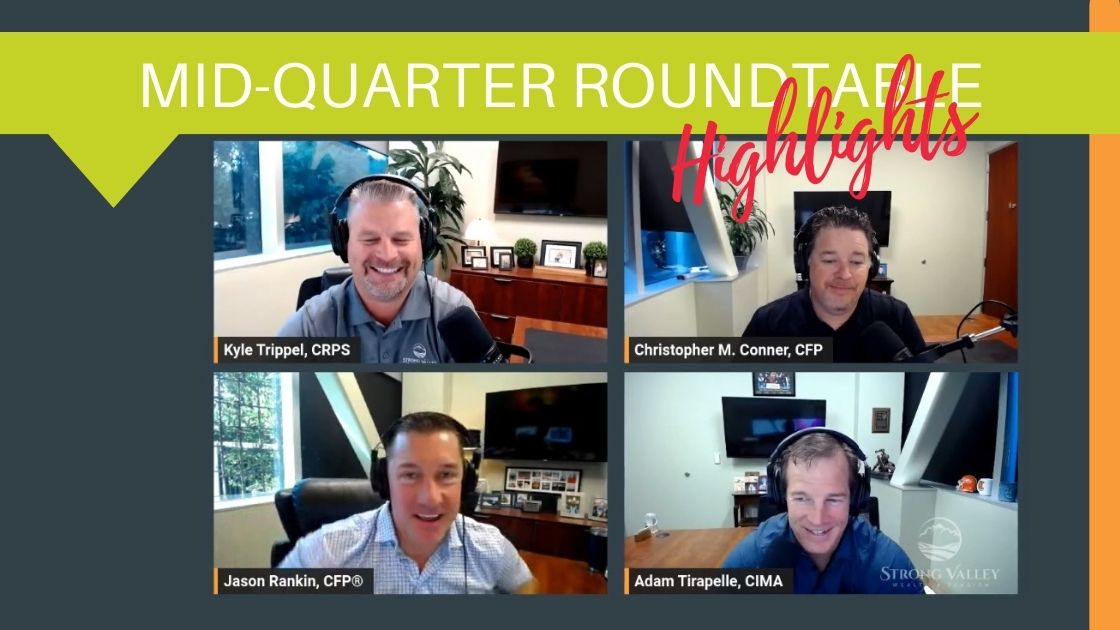You are now leaving the Strong Valley Wealth & Pension, LLC ("Strong Valley") website. By clicking on the "Schwab Alliance Access" link below you will be entering the Charles Schwab & Co., Inc. (“Schwab”) Website. Schwab is a registered broker-dealer, and is not affiliated with Strong Valley or any advisor(s) whose name(s) appears on this Website. Strong Valley is/are independently owned and operated. Schwab neither endorses nor recommends Strong Valley. Regardless of any referral or recommendation, Schwab does not endorse or recommend the investment strategy of any advisor. Schwab has agreements with Strong Valley under which Schwab provides Strong Valley with services related to your account. Schwab does not review the Strong Valley website(s), and makes no representation regarding the content of the Website(s). The information contained in the Strong Valley website should not be considered to be either a recommendation by Schwab or a solicitation of any offer to purchase or sell any securities.

There are strategies that can be taken to navigate market volatility with confidence instead of being driven to invest by the Fear Curve. Here are five foundational rules to be aware of that can help you make more rational investing decisions and avoid the emotional roller coaster of the fear curve.

In the unpredictable world of investing, the “fear curve” is an all-too-familiar emotional roller coaster that leads many investors to make decisions that ultimately harm their financial health. It’s this curve that drives people to buy at market peaks and sell at troughs, missing out on potentially lucrative opportunities. The irony is, the most significant opportunities often emerge when ideas are new or widely disliked, especially when market panic and despair peak. It’s during these times that investing feels most uncomfortable, yet, paradoxically, it’s also when the best buying opportunities arise.
As financial advisors, we’re here to guide you through mastering the fear curve, always working to try to shield you from significant losses, and positioning you for possible substantial gains. Let’s explore five foundational rules to help you make more rational decisions and avoid the emotional roller coaster of investing.
Diversification can be the cornerstone of both building and preserving wealth. It's advisable to spread investments across various asset classes, including stocks, bonds, cash, real estate, collectibles, cryptocurrencies, and other alternatives. Diversification not only aims to enhance returns but also significantly reduces risk. Research consistently shows that asset allocation is responsible for over 90% of your investment returns.
The market's short-term movements are largely unpredictable. Despite the plethora of forecasts, even experts often miss the mark. For the majority of investors, especially those not engaged in day trading, daily market volatility should be a non-issue. Focus instead on the broader economic and financial landscape, ignoring the daily noise that can lead to hasty decisions.
Protecting your current assets is a prerequisite for wealth generation. A sound risk-management strategy involves careful position-sizing, which limits the size of any single investment within your portfolio. This approach helps mitigate panic selling during downturns, allowing you to maintain composure and confidence in your investment strategy.
Regular, disciplined investing—known as systematic investing—can significantly impact your financial growth over time. This can be facilitated through automatic direct deposits into brokerage accounts, participating in employer-sponsored retirement plans, and opting for dividend reinvestment programs for mutual funds, ETFs, and dividend-paying stocks. This strategy helps in building wealth steadily, leveraging the power of compounding.
After establishing an investment plan, it’s crucial to adhere to it, barring annual adjustments or necessary rebalancing. Constantly shifting strategies in reaction to market volatility is a common pitfall that leads to emotional investing. By committing to a well-thought-out plan, you are striving to safeguard against the whims of market sentiment and position yourself for long-term success.
By following these rules, investors can strive to help shield themselves against the greatest risks and capitalize on the most substantial opportunities. Overcoming the fear curve is not about eliminating emotions but managing them effectively to make informed, rational investment decisions. Remember, in the realm of investing, discipline and patience are virtues that often lead to prosperity.



